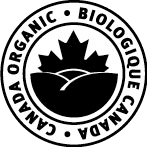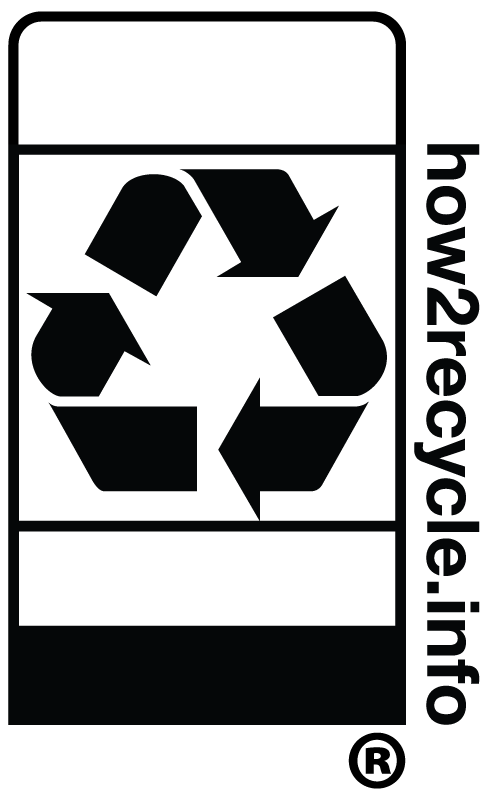Frequently Asked Questions
Is glass really more eco-friendly?
Reusable glass bottles are zero-waste. As the adage goes – you should always target to reduce, reuse & recycle. That order is not by coincidence – it is based on priority with reduction the first step towards a more circular future. Our existing glass bottles are proudly made with 30% recycled content (non-virgin glass) and used a min of 10X. They are then packaged in reusable plastic crates which are used on average nearly 100X.
Are your products GMO-free?
All Organic Meadow products are certified organic which means, by definition, they are always free of Genetically Modified Organisms. Under the Canadian Organic Standards, the use of GMO’s is not permitted. This means that the ingredients in our products and the food that we give our animals are not grown from GMO seed or produced with GMO products.
Are your products gluten-free?
All Organic Meadow products are gluten-free, except for kefir and ice cream. Our kefir cultures are grown in a facility where barley is present, and our ice cream is produced in a facility where gluten is present.
Are your products grass-fed?
Under Canadian Organic Standards, on an organic dairy farm, a minimum of 60% of cows’ diet must come from pasture and dried forage. The exact percentage of grass varies depending on the individual farm, season and nutritional needs of the cow. The cows are free roaming on grassy pastures during the warm months starting as soon as the grass has grown long enough for the cows to eat. This period, typically from mid-late May until late October, is often referred to as ‘Pasture Season’. In the winter, the cows still go outside (weather permitting) as it is required within the Canadian Organic Regime that cows have outdoor access year-round. Weather conditions and other factors can make it impossible for many of our farmers to grow and store enough top-quality forage to meet the needs of their cows all year long without the option of grain. In these circumstances, our farmers choose from a variety of organic grains, including oats, barley, peas, corn, and soybeans, to supplement the cows' diet and to make sure they stay healthy. Any grains that the cows are supplemented with come from 100% certified organic sources and often come directly from the same farm. The grains are GMO free.
Are your products probiotic? / Do your products contain active bacterial cultures?
All Organic Meadow Kefir and Yogurt products are made with live, active bacterial cultures. Our organic kefir is proudly made with 10 bacterial cultures and contains over 2 billion active cultures per 250mL serving. Our organic yogurt is made with 4 active bacterial cultures and our organic Greek yogurt is made with 2 active bacterial cultures, each providing more than 1 billion probiotic bacteria per serving.
Are your products lactose-free?
We recognize that some people have a hard time digesting lactose, which is the natural sugar that is present in all cows’ milk. As such, we are proud to offer Canada’s first (and only) organic 2% lactose-free milk & yogurt products. To make it, we take our organic milk and add a natural enzyme called lactase which breaks down the lactose into easily digestible sugars, glucose and lactose. The lactase enzyme is permitted under the Canadian Organic Standards and is non-GMO.
What is HTST Pasteurization?
High Temperature Short Time (or HTST as it is known in the industry) is a common method of pasteurization. Using this traditional method, milk is heated to a minimum temperature of 72°C and held for a minimum of 16 seconds. The milk is pasteurized to kill any pathogenic bacteria that may be present. For our pasteurized HTST milk, it is common to find a date code between 20 to 22 days from the date of manufacture. This ensures a fresh, wholesome dairy product.
Is my carton of milk good past the best before date?
We cannot recommend consuming any milk product past the best before date. We guarantee its freshness up to the best before date if unopened. Once opened, a milk product is freshest tasting within 7 days.
Why does butter not have an expiry date?
The reason we do not put an expiry date on our butter is because it is depends on how the butter is stored - refrigerated or frozen. As such, the date coding shown on the butter refers to its date of production. The butter leaves the processing plant frozen. Once it gets to the stores it is up to the individual retailer how they want it stored (fridge or freezer).
Here is how to read the code on the butter:
Look at the first of two rows of numbers stamped on one of the sides of the butter package.
An example is C00919.
C stands for Culture. If it were salted butter it would start with an S.
009 represents the 9th day of the year, which is January 9th.
19 is the year.
This production date is January 09, 2019.
The estimated shelf life if kept in the fridge is 4 months. The estimated shelf life if kept frozen is up to 2 years.
Where can I purchase Organic Meadow Products in my area?
You can visit our enhanced Store Locator and enter your location and the products that you are interested in purchasing and a list of stores who carry these products will be generated. As well, you can fill out our Contact Us form and ask us directly, we would be happy to help!
Where can I purchase Organic Meadow eggs?
Yorkshire Valley Farms now sells our eggs repackaged under their brand name. This agreement will help the egg producers grow the organic egg category together by focusing their collective efforts. The eggs will continue to be produced in the same fashion and by the same farmers.
To find out where you can purchase the eggs, please contact Yorkshire Valley farms at info@yorkshirevalley.com or call 1-800-830-7838.
The remainder of our dairy products, including milk and cream, cheese, yogurt, kefir, cottage cheese, ice-cream and butter will continue to be packaged under the Organic Meadow brand.
Can’t find what you’re looking for? Ask us directly.
|





